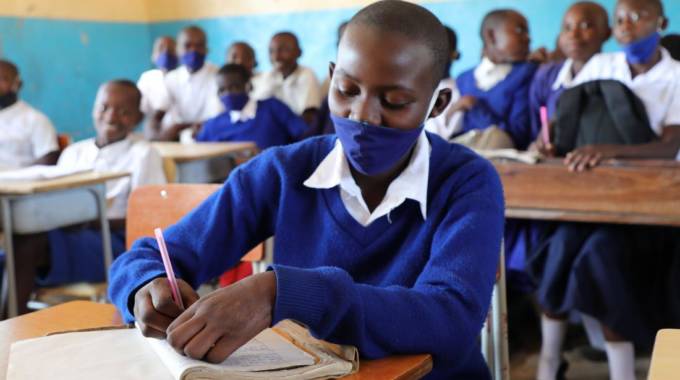
The ManicaPost

WITH schools reopening for examination classes next Monday and a week later for the rest of the grades and forms, below are some tips that may help everyone to stay safe, either at school or at home:
1. Flexibility is key. Talk with your children about the importance of staying flexible.
Protocols that may be in place in September may change as the school year goes on.
With a flexible attitude, children and parents can build resiliency that will help pave the way for a smooth year.
2. Have conversations.
Candid, age-appropriate conversations with your children will help them know they are not alone.
Although we do not have all the answers, scientists, health experts, parents, teachers, and other leaders are working hard to ensure their health and safety.
3. Get back to a regular sleep schedule.
Many students are on a different sleep schedule throughout the summer.
Parents can start incrementally pushing up bedtime in August to help ease the transition.
Try to follow a consistent bedtime routine and avoid electronics in the bedroom.
4. Prevent separation anxiety.
Children may feel nervous about going back to school and being apart from family members.
Have conversations about school and develop tools for your child to feel connected to home, such as notes in their lunchbox, or a family photo they can bring to school.
5. Have a plan.
Family routines changed during the pandemic.
Parents who worked from home may now need to go to the workplace.
One of the best ways to help a child feel supported is to ensure they know where all family members are and how to reach them if needed.
Consider placing a white board in the kitchen noting where each family member is each day.
6. Communicate with your child’s teacher.
Let your child’s teacher and guidance counsellor know if something is going on that might affect the student, such as the loss of a parent’s job, a death in the family, a divorce, or other significant life change.
Teachers do best when they know what is going on in their students’ lives that could impact their ability to focus, socialise, and come to school ready to learn.
7. Make time to listen.
Your children may react to changes in their routine in various ways.
Be ready for some behaviour changes — such as acting out in younger children and quietness in teens.
Before bed is a good time to listen to your child recount events and feelings from the day.
This extra time provides a safe environment for children to express their emotions and you may be surprised how much you learn about them.
8. Watch for signs of stress.
Stay tuned to warning signs that your child, grandchild, or someone you love might need mental health support.
These signs include:
Sudden changes in activities or behaviours
Sudden weight loss or weight gain
Trouble in school or extracurricular activities, including
missing homework or ending participation
Reckless behaviour, such as withdrawing or acting rebellious, aggressive, or overly impulsive
Signs of depression, such as excessive isolation
Substance use or abuse
Sleeping too much or too little
Destructive behaviours such as self-injury
Talking or writing about suicide and death.
9. Do not delay your child’s health care.
Many health issues can be easily managed when recognised early, but can lead to challenges if caught later.
10. Foster a positive digital environment.
Digital media use can have positive and negative impacts on mental health.
Encourage your family to disconnect on a regular basis.
11. Last, but certainly not least, take care of yourself. It is important to take care of yourself, as well as your family. — Online



